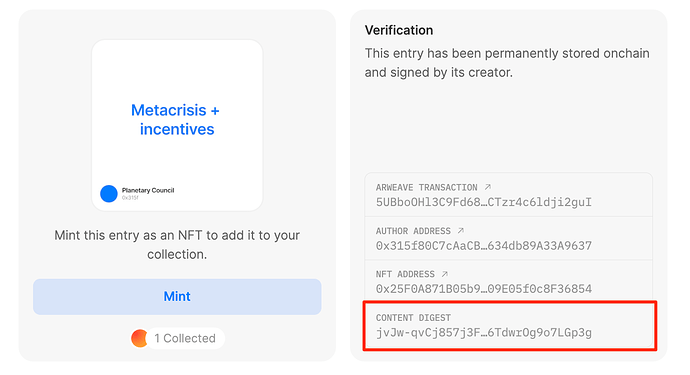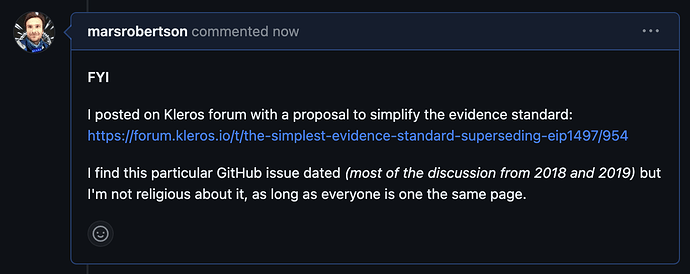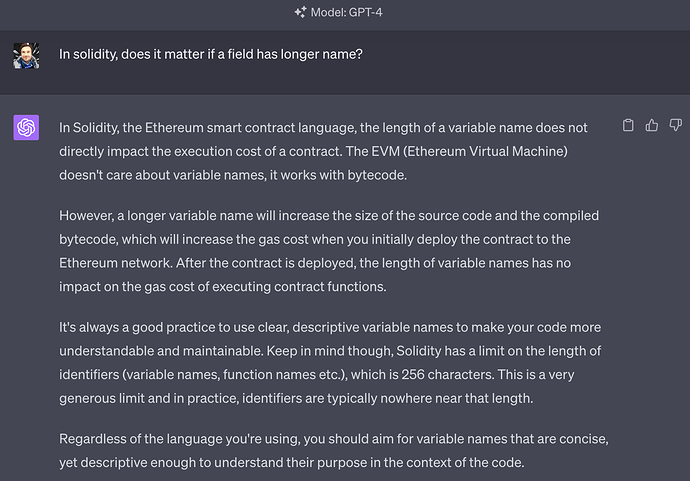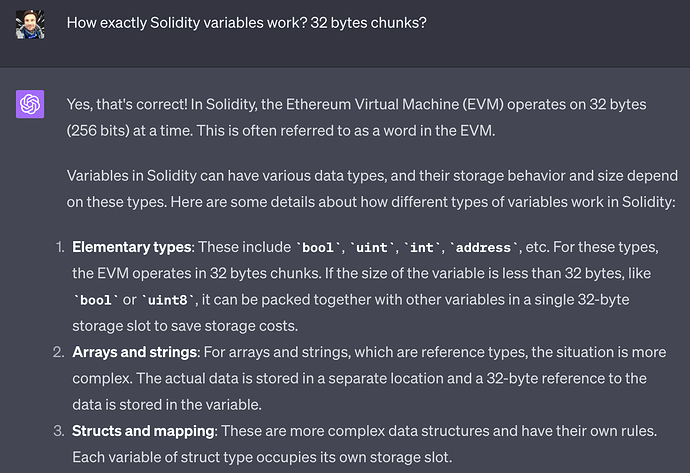Sure. Face to face. Humans evolved in communities, our neural nets are wired to recognise faces… I don’t think we ever met IRL 
I like public forum - more inclusive, public, transparent, open-source - but I’m also aware that our discussion went into distant tangents and nuanced point.
My core intention is to simplify
The moment we start talking about “metahash” I become confused as it is non-obvious.
Current state of my thinking
1st parameter is the URI of the evidence, this can be any protocol:
ipfs://arweave://bitcoin:// (inscriptions)https://ftp://
There are no limits, but if you use something “too crazy” the front-end may not know how to interpret it.
2nd parameter can be called metadata (or info / details / context / extra / data / blob / params)
It can be either the on-chain JSON key-value data structure or, in case it grows too large and gas cost is the concern - it can be a JSON file uploaded to IPFS, or any other service
My personal preference is towards IPFS because it is well-established, well-adopted standard.
Someone could in theory submit https:// evidence and then https:// metadata but it would be counterproductive, confusing, potentially misleading. I don’t want to stop such behaviour, if someone wants to do weird stuff - it’s their own conscious strategy, they may have some genuine reasons to do it.
I think that complexity of:
- plain text JSON available on-chain
- plain text JSON as IPFS file
Is relatively simple, it is much simpler that existing evidence standard
Nice to have / good to know
Maybe someone has time / energy / willingness to run the analysis of all the existing cases and all the existing evidence.
That would be a valuable data point to see what is used in real-life. In that way we could see what are the common patterns and which parts of the existing standard are ignored.
Suggested fields for metadata
- Format (to quickly display on the front-end whether it is PDF of image)
- Date (sometimes creation date is not equal to publish date)
- Hash
- Hashing algorithm (optional, we can just stick to default hashing function)
3rd party services
I happen to own two domains:


 It is possible to build some standard around it as well, and integrate with other archiving services
It is possible to build some standard around it as well, and integrate with other archiving services
Not just for Kleros but for justice in real-life, loads of legal dudes are still sending .doc Word files that are surely not altered in the process LOL.
Tangent warning
“statement of truth” VS “statement under oath”
Submitting fake / fradulent / misleading evidence in real life can be seen as Perverting the course of justice - Wikipedia
In the UK legal system it is up to a lifetime in prison. In Kleros courts you create an anon account and can cause confusion / chaos… As a part of metadata there could be yet another field:
- Oath - me recording 10 seconds video saying “truth, all the truth, nothing but the truth”
Diversity as competetive advantage
Kindly welcoming other points of view 

 since it encrypts the data with a kind of Merkle tree called Merkle DAG.
since it encrypts the data with a kind of Merkle tree called Merkle DAG.




